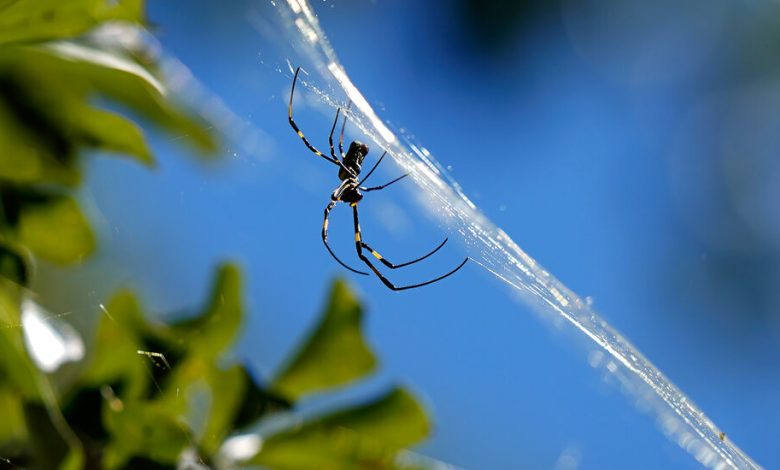Eight Legs and the Size of a Hand: All About the Joro Spider

This summer might be a buggy one. As many as one trillion cicadas are emerging in the United States, spotted lanternflies are back and now scientists are predicting the arrival in the Northeast of a newcomer: the joro spider.
It’s unclear when exactly the joro, a large, brightly colored spider, will make its way to the Northeast. And there are some silver linings: There won’t be millions of them, and they eat other pests, including spotted lanternflies, which officials have urged New Yorkers to kill on sight.
Here’s what to know about these spider invaders.
How large are we talking about?
These spiders are big, about the size of a Post-it note or a stretched-out human hand, and have long legs, said José R. Ramírez-Garofalo, an ecologist at Rutgers University. The female spiders can grow up to eight inches long, while the males are roughly half that size, he said.
They can fly, sort of: They move through the air by shooting silk threads that catch the wind, and the air currents carry them along, although not very far. They also travel on cars and trucks.
The joro spider, which is a type of orb weaver, is native to East Asia. It was first spotted in the United States roughly a decade ago, in Georgia. The spiders have since spread to other states, including the Carolinas, Tennessee and West Virginia, according to iNaturalist, an online network of people sharing information about nature. The spiders have been seen as far north as Maryland so far, according to that database.
Where exactly are these spiders expected to go, and when?
Scientists estimate that the spiders will soon arrive in the Northeast, including New York and New Jersey. One scientific study last November found that the spiders were spreading faster to the North than the South, and were spreading to the Northeast the fastest.